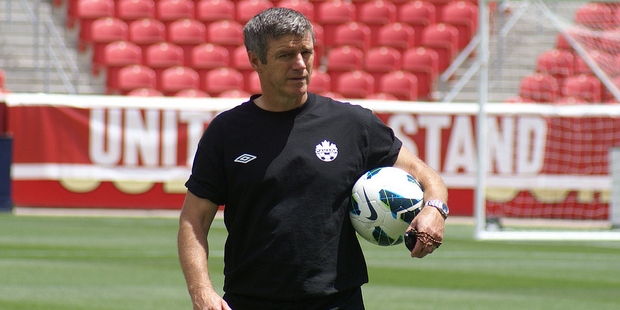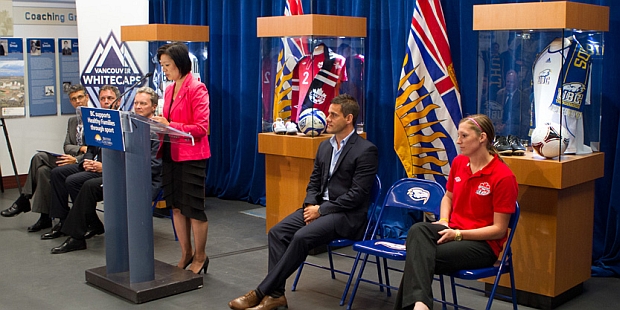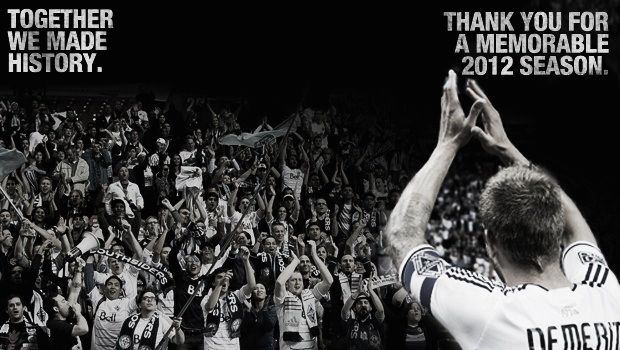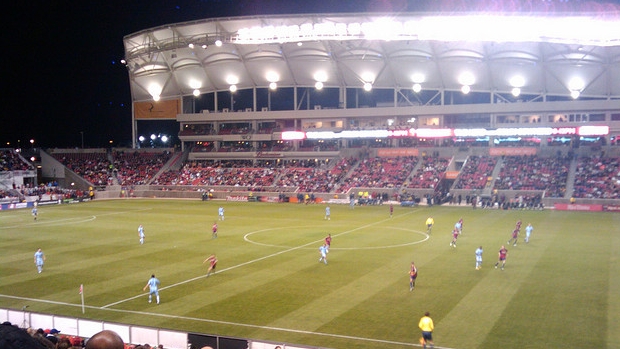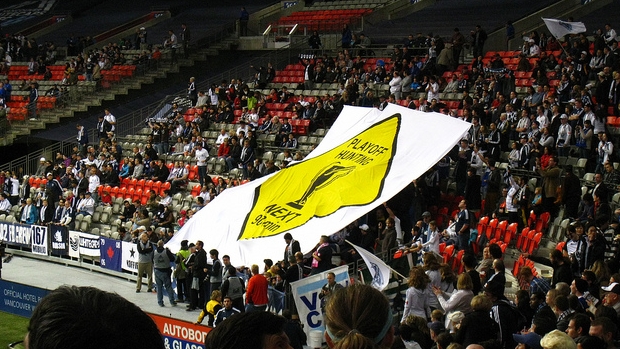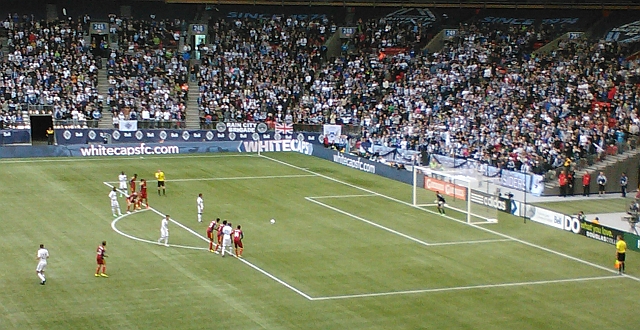
Camilo lines up for his penalty kick against RSL’s Nick Rimando. Photo Andrew Bates/Little Rubber Pellets
Enthusiasm can get you places, but not the whole way.
Ahead of Saturday’s game against Real Salt Lake, the Whitecaps pushed hard on the notion of the advantage it has at home. That is because they want you to believe this will be like last year, when strong home performances pulled out low-percentage wins against challenging opposition, and not like 2011, where the season fell apart after a strong start and they couldn’t defend for the life of them on the road.
From the first half, it seemed to be working. Outside of Joao Plata’s goal, called off for offside, Real Salt Lake got precisely zero shots on target, despite outpossessing the Caps 59 per cent to 41 per cent. It is, to be honest, astounding that the ‘Caps did not pick something up in the first frame. But while the midfield was strong and moved with purpose, the attack seemed a bit more improvisational. The first half’s finest move came from Y.P. Lee, curving it in but just tipped over by RSL’s Nick Rimando, who played well.
The group of talented speedsters that made up the Whitecaps attack — Camilo, Corey Hertzog, Darren Mattocks — are bright at making the run, generating chances and creating. But in the box, the passes in the box weren’t crisp and Vancouver wasn’t quite fast enough at the crucial process of making decisions and then executing them. The contested play where Y.P. Lee was brought down in the penalty area with no call might have been contact, but the fact was that Lee was off-balance from pivoting two, three times looking for an option.
It seemed they were going to be punished for it on 66 minutes when Olmes Garcia pulled off the opposite: firing a beautiful, floating ball into the top corner off a Javier Morales cutback. It was the same ball Lee had been trying at all night, and mainly worked because Garcia had acres of space, and it was one of the only great things Salt Lake did all night. The Whitecaps looked deflated.
Darren Mattocks, subbed on for an impressive-and-improving Corey Hertzog minutes earlier, helped improve things. He fits into a spray-and-pray offense a lot better, and there were a couple of heartbreaking headers he just couldn’t get high enough for, including an attempt to recreate the famous Toronto goal that redirected straight down.
It’s not surprising that the workman-like approach is what ended up working. Mattocks’ penalty kick eventually came when he tried to ping it through and Nat Borchers fell on the ball with his hand. Camilo, who took the kick successfully, was rewarded with a goal for his five shots on target, but it came through working the ball towards the goal, not crisp execution.
Watching the confidence coming from outside of the area in the form of armband-sporting Nigel Reo-Coker and Y.P. Lee, it’s possible that this is what the attack misses without Miller. Not that he’s any better with improvisation, but a veteran presence could have helped Hertzog, Mattocks and Kekuta Manneh (who also served a great ball) from as much stress and guesswork.
The ‘Caps worked hard with a generous five minutes of added time to try and pull something off, and despite a late scare on the game’s last move where Joe Cannon saved the point, they held deservedly.
With the attack like it was today, an energy-based system that runs on effort and gumption, running the ball in and creating terror, is it any wonder that this works better at home? Comfortable and in front of lively fans, it’s a lot easier to pull off high energy. But they need to have some better answers and better finish to be able to turn chances into goals, and draws into wins.
Stats and quotes after the jump.

